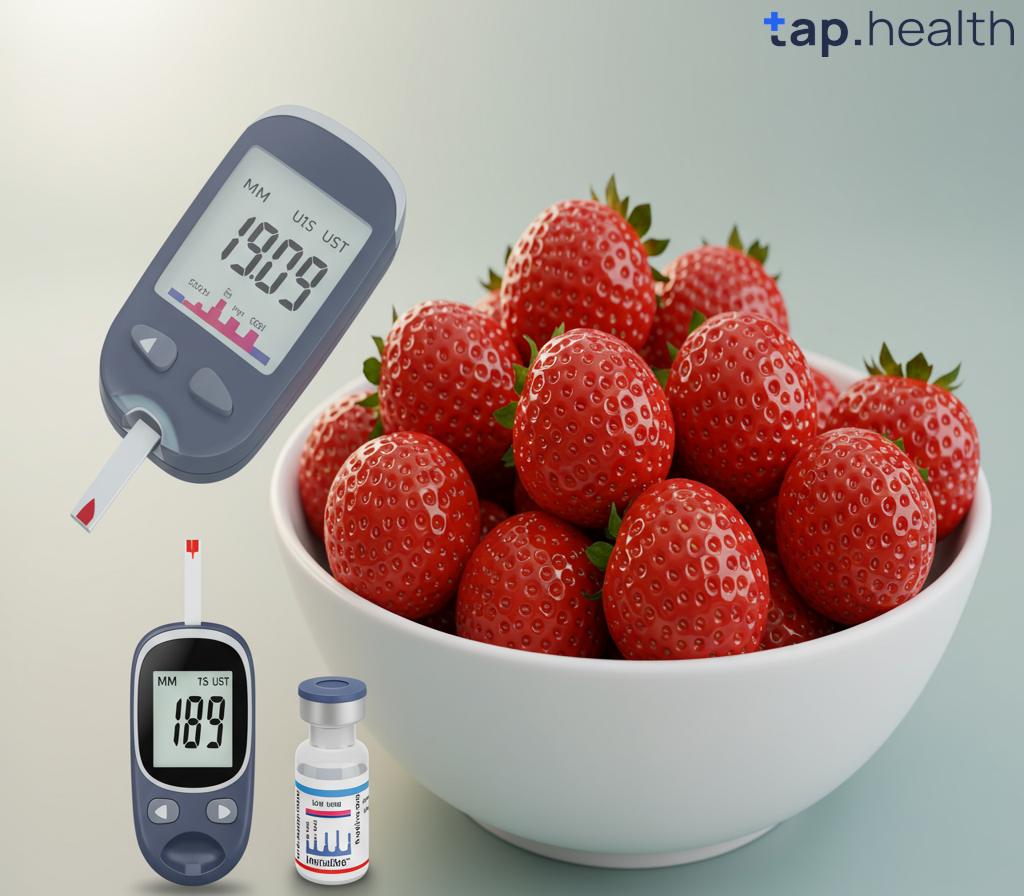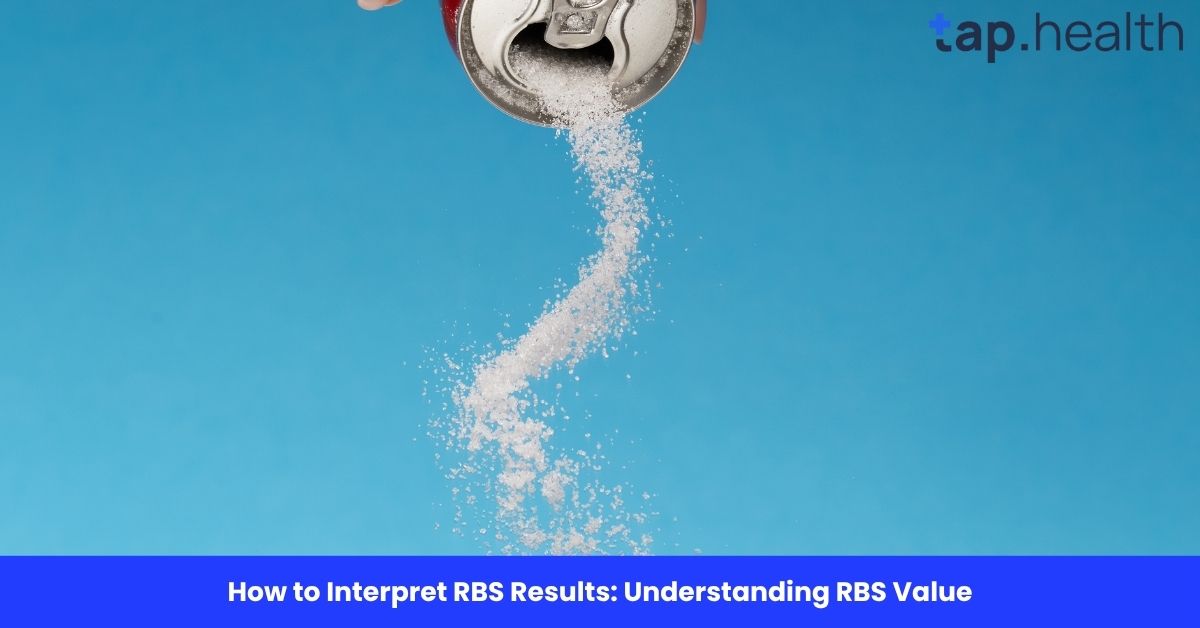Strawberries are a popular and flavorful fruit enjoyed by many for their sweet taste and vibrant color. For individuals with diabetes, managing blood sugar levels is essential, and choosing the right fruits plays a significant role in achieving this goal. But is strawberry a good fruit for diabetic patients? In this article, we explore the nutritional benefits of strawberries, how they affect blood sugar levels, and how to incorporate them into a diabetes-friendly diet.
Nutritional Benefits of Strawberries
Strawberries are not only delicious but also packed with essential vitamins, minerals, and antioxidants. A 100-gram serving of strawberries contains:
- Calories: 32
- Carbohydrates: 7.7 grams
- Fiber: 2 grams
- Vitamin C: 58.8 mg (about 99% of the daily recommended intake)
- Potassium: 153 mg
- Manganese: 0.4 mg
Strawberries are an excellent source of vitamin C, which supports immune health and promotes collagen production. They are also a good source of fiber, which plays a key role in blood sugar control by slowing the absorption of glucose into the bloodstream. Additionally, strawberries contain antioxidants, such as anthocyanins, which help reduce inflammation and oxidative stress.
How Strawberries Affect Blood Sugar Levels
For diabetics, understanding how different foods impact blood sugar is vital. The glycemic index (GI) and glycemic load (GL) of foods provide insight into how they affect blood sugar levels.
Low Glycemic Index and Glycemic Load of Strawberries
Strawberries have a low glycemic index (GI) of 41, which means they cause a slow and steady rise in blood sugar levels. Foods with a low GI are generally recommended for people with diabetes, as they help maintain stable blood sugar levels. The glycemic load (GL) of strawberries is also low at approximately 2 for a 100-gram serving, further indicating that strawberries are unlikely to cause rapid spikes in blood sugar levels.
The fiber in strawberries also helps regulate blood sugar by slowing down sugar absorption, making them an excellent choice for diabetics.
Strawberries and Insulin Sensitivity
Insulin sensitivity is an important factor in diabetes management. In individuals with Type 2 diabetes, insulin resistance makes it difficult for the body to use insulin effectively, leading to higher blood sugar levels.
Antioxidants and Insulin Sensitivity
Strawberries are rich in antioxidants, including anthocyanins, which are the compounds responsible for their vibrant red color. These antioxidants have been shown to have anti-inflammatory effects, which can help improve insulin sensitivity. By reducing inflammation and oxidative stress, strawberries may support better insulin function, which is crucial for maintaining stable blood sugar levels in diabetics.
Strawberries and Heart Health
Diabetes increases the risk of cardiovascular diseases, so it is important to include heart-healthy foods in your diet. Strawberries contain several nutrients that support cardiovascular health.
Potassium for Blood Pressure Regulation
Strawberries are a good source of potassium, which plays a key role in regulating blood pressure. Potassium helps balance sodium levels in the body, which is crucial for managing blood pressure. Since people with diabetes are at higher risk for hypertension, including potassium-rich foods like strawberries in the diet can help reduce the risk of high blood pressure and promote heart health.
Antioxidants for Cardiovascular Health
The antioxidants in strawberries, including vitamin C and anthocyanins, help reduce inflammation and oxidative damage, both of which contribute to heart disease. By supporting blood vessel health and improving circulation, strawberries can play a role in reducing cardiovascular risk for diabetics.
Strawberries and Weight Management
Maintaining a healthy weight is essential for managing diabetes. Excess weight, particularly abdominal fat, can contribute to insulin resistance and make blood sugar control more difficult.
Strawberries for Satiety and Portion Control
Strawberries are low in calories and high in water content, making them a filling and hydrating snack. The fiber in strawberries also helps promote satiety, reducing the likelihood of overeating. Incorporating strawberries into meals or snacks can help diabetics control their calorie intake while still enjoying a sweet and satisfying treat.
How to Include Strawberries in a Diabetic Diet
Strawberries can be a healthy and delicious addition to a diabetic-friendly diet. Here are some ways to incorporate strawberries into your meals:
As a Snack
A handful of fresh strawberries is a quick and easy snack. You can enjoy them on their own or pair them with a small serving of nuts or seeds for added protein and healthy fats, which can help stabilize blood sugar levels.
In Smoothies
Blend strawberries with other low-GI fruits like berries or kiwi, and add unsweetened almond milk or Greek yogurt for a refreshing, nutrient-packed smoothie. This makes for a great breakfast or post-workout snack.
In Salads
Add sliced strawberries to salads for a burst of sweetness and nutrition. Combine them with leafy greens, nuts, and a light vinaigrette dressing for a balanced, blood-sugar-friendly meal.
In Desserts
You can use strawberries in low-carb, diabetes-friendly desserts. For example, mix them with unsweetened Greek yogurt or make a simple strawberry sorbet by freezing blended strawberries.
FAQ on Strawberries and Diabetes
Q1: Are strawberries safe for diabetics to eat?
Yes, strawberries are safe for diabetics to eat. With their low glycemic index and high fiber content, they are a great option for managing blood sugar levels.
Q2: How many strawberries can diabetics eat?
A moderate serving of strawberries, such as 1/2 cup (about 75 grams), can be safely included in a diabetic diet. As always, it’s important to balance fruit intake with other low-carb, high-fiber foods.
Q3: Can strawberries help lower blood sugar levels?
Strawberries do not directly lower blood sugar levels, but their antioxidants, fiber, and low glycemic index help support blood sugar regulation and may improve insulin sensitivity over time.
Q4: Are strawberries better than other fruits for diabetics?
Strawberries are an excellent fruit for diabetics due to their low glycemic index and high antioxidant content. However, other fruits like berries, apples, and pears also have low glycemic indices and can be included in a diabetic diet. It’s best to enjoy a variety of fruits in moderation for balanced nutrition.
Q5: Can strawberries help with weight loss in diabetics?
Yes, strawberries are low in calories and high in fiber and water content, making them a great choice for weight management. They help promote satiety, reduce cravings, and assist with portion control.
Conclusion
Strawberries are a nutrient-rich, diabetes-friendly fruit that can help regulate blood sugar levels, improve insulin sensitivity, and support heart health. With their low glycemic index, high fiber, and antioxidant content, strawberries can be a delicious and healthy addition to a balanced diabetic diet. As with all fruits, moderation is key, but incorporating strawberries into meals can help diabetics enjoy the benefits of this versatile fruit while managing their blood sugar levels effectively.


